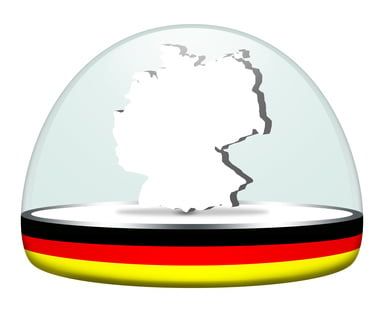Apparently there is no real risk of a real estate bubble forming in Germany, in spite of recent fears. According to Fitch Ratings there is no real risk within commercial or residential real estate sectors, as rents and property prices have generally kept pace with the economy.

© Bibanesi ' Fotolia.com
The report by Reuters goes on to point out that only large metropolitan areas such as Munich and Berlin have seen large price increases that aren't in line with other fundamentals such as limited construction, economic stability and net migration figures. Fitch is predicting residential property prices will continue to increase across Germany, and could rise quite sharply in core markets at least in the short and medium term. This is because the agency expects strong investor demand to continue. However net rental yields are expected to continue to fall due to growth slowing down within the German economy.
Fitch also pointed out that although some moderately priced, high loan to value mortgages are available from certain German banks, most residential mortgage lenders are sufficiently protected. Since the beginning of the financial crisis the standards for commercial loans have improved.
Germany is remarkable in having one of the lowest home ownership rates in Europe as it currently stands around 46%, and a number of outstanding residential mortgage loans have been increasing by just 1% annually since 2003. Buyers in Germany cannot obtain 100% mortgages, and most need to deposit of around 30% which is something that can explain why prices have remained stable.
Although the debt crisis continues to be a problem, most real estate investors expect the Eurozone to remain intact, and a recent poll by Union Investment showed just 12% thought a breakup is likely. However the percentage of those who think a Europe wide recession is likely currently stands at 42%. But 56% of investors, which is 7% more than just six months ago, believe the German real estate market will emerge more strongly from the current crisis, and Germany is still one of the most popular real estate markets for investors in the world.
This optimism may prove to be well founded, as figures recently released show the German economy enjoyed better than expected growth during the second quarter, albeit modest, and is still ahead of other Eurozone countries that are currently seeing their economies contract or stagnate. despite the recession, Germany has seen average economic growth of around 2% annually. Property prices in Germany fell by around 10% between 2000 and 2005, stagnating until 2009. Since then they have risen steadily at two or 3% per year.
0 komentar:
Posting Komentar